|
|
||
|
Pro Tools
FILMFESTIVALS | 24/7 world wide coverageWelcome ! Enjoy the best of both worlds: Film & Festival News, exploring the best of the film festivals community. Launched in 1995, relentlessly connecting films to festivals, documenting and promoting festivals worldwide. We are sorry for this ongoing disruption. We are working on it. Please Do Not Publish until this message disappears. For collaboration, editorial contributions, or publicity, please send us an email here. User login |
Vanessa McMahonVanessa is a novel writer, screenwriter, rep and a film producer. She shares her discoveries and film surprises. :-)
 Interview with Wael Omar on 'In Search of Oil and Sand'.
Writer/Director/Producer Wael Omar is an avant-garde filmmaker in the true sense, standing at the frontlines of battle in the midst of Egypt’s ongoing political revolution. After receiving an MA in Film Arts, Wael began his filmmaking career making documentary shorts (‘The Countdown’, 2006; ‘Democracy 76, State of Emergency’, 2006; ‘Getting Back’, 2007) and most recently completed his first doc feature with co-director Philippe Dib ‘In Search of Oil and Sand’ (2012). Living history in a reality more incredible than fiction, Wael focuses on documentary films about Egypt’s past, present and future. Shortly after 53rd Thessaloniki Film Festival, Wael and I spoke about his film 'In Search of Oil and Sand' (2012) which recently premiered at the 2012 Abu Dhabi Film Festival.
ME: First thing I have to ask is what is it like to be a filmmaker in Egypt today after the past few years of the Arab Spring? What is the climate in Egypt and the Middle East now, especially for your generation? WAEL: Still teetering with uncertainty, lots of danger, instability. Naturally its an incredible change of pace from the mundane reality of dictatorship, so as a filmmaker -as a documentary guy- I feel pretty blessed to be in the middle of this vortex of energy and change, but there’s also an unsettling feeling that comes with it all. Nausea often comes hand in hand with excitement. We’ll need to wait and see whether the virtues proposed by the Arab Spring will become a reality; there’s hope, and lots to be done. It’s only just begun. ME: I know you were shot several times during the Tahir Square demonstrations in 2011. What was that like to witness and were you part of the demonstrations? WAEL: Actually I was only shot twice, it’s just that the second time I was hit with 19 pellets from a shotgun cartridge. I consider myself very lucky to have made it out alive. Others weren’t so lucky. Almost two years later, I’m still sorting out my memories and my feelings about what happened. Have you ever felt like you were living in a movie. That’s what it was like for 18 days, millions of people living in the exact same dream for 18 days. Its just very hard to describe what it was like… it was ideal. It was utopian. ME: How did you begin your career in film as a documentarian? Do you want to go on to make fiction features at some point? WAEL: I began with being a really big fan of documentary and non-fiction television. I’m a big news junkie, so I suppose that played the biggest role in becoming a documentary filmmaker. I’d love to direct more fiction, especially that I have theater background. At the same time, I just can’t resist an interesting subject. I think the difference is that with fiction, you have to tell stories that you know, and with documentaries you tell stories that you are still in the middle of discovering. But, you know, filmmakers have obsessive characters so I suppose there will come a day when I’ll be obsessed with making fiction. ME: You have worked on some Hollywood films as an Egyptian production assistant/staff. How did you get involved in those feature films? WAEL: I’ve only worked on 2 Hollywood features actually. I was a student in the US, and managed to get an internship at Fine Line Cinema in Los Angeles. So at first I was an intern at the acquisitions department, reading scripts and answering phone calls; then managed to get a job as a set intern, and one job led to another. I worked a couple of days on the CSI soundstage when I went back to New York, but started focusing on small jobs that could sustain me while I worked on my projects. There’s a moment with all filmmakers ME: Your latest film, documentary ‘In Search of Oil and Sand’ (2012) focuses on Egyptian high society in the 1950s. Can you explain what inspired you and your partner Philippe Dib to focus on this time of Egyptian history? WAEL: Philippe basically had met Mahmoud, and had listened to many of his incredible anecdotes that eventually the light bulb came on. One of the stories he’d mentioned was about a series of film reels he had in storage, that were part of a film that members of the royal family had made shortly before the coup d’etat of 1952. Personally, I couldn’t believe it till I saw it. Meeting Mahmoud for the first time was a treat, but what he had was incredible. Here I was looking at these 60 year old reels that documented the last days of a dynasty. In a way I felt extremely privileged to be seeing this kind of ‘truth.’ Historical characters become real again when you see them filmed this way, the inner workings. Its less about being enamored by the glamour of high society –although it was indeed as charming as an elite as can be- but it is the human and historical value in the footage, and in Mahmoud that I found enlightening. ME: You filmed part of ‘Oil and Sand’ in Hollywood correct? Can you explain the ties between Egypt and Hollywood at that time in the 1950’s? WAEL: Because Mahmoud’s mom –Frances Ramsden- was an actress in Hollywood in the 1940s, there was some thinking about that, but shooting a documentary can be expensive, and at the end shooting a scene like that was a bit cost prohibitive and there was also a concern with the sudden change in point of view it could mean if we told the story purely from her perspective. Its almost its own film –a booming young actress from Hollywood, leaves Preston Sturgess, leaves Hollywood altogether, to be one of the first post war mannequins in Paris, only to be swept off her feet by an Egyptian royal, ending up in Egypt, and living through the coup d’etat. Of course there’s also the transformation of Egypt into a soviet style military state… an escape to Berlin. Really, it’s just an incredible story. And that’s not even half of it. ME: Your film opened at the recent Abu Dhabi Film Festival. How has the film been received by Egyptian and Middle East audiences? WAEL: We had to premiere in Abu Dhabi, both because it came before the other big festivals in the region, and also because they gave us support early on with a development fund, then later came in again with a post-production fund. It had an amazing reception, and got really good reviews from the international and Middle East press. Even from our own, very Nasserist leaning press, we had balanced reviews and much praise for the film, both technically and artistically. To be honest, the film’s main subject, Mahmoud Sabit, is a magnetic character –it’s hard not to like him, regardless of your socio-political dispositions. ME: Egypt has long been known as the ‘Hollywood of the Middle East’. Why is that? WAEL: The second EVER public showing of a motion picture was by the Lumière brothers…in Alexandria. And I’m not talking about Alexandria, Virginia. Egypt’s movie industry was a serious affair founded by the same man who founded the first major bank in Egypt. It was a studio system just designed after Hollywood. Culture and Entertainment were very much a part of the social fabric. Our biggest actors and actresses were not just Egyptians, they were Greek-Egyptians, Italian-Egyptians, Austrian Egyptians, Lebanese, Syrian, Jewish… it was a cosmopolitan era, with very stratified social classes –and yet films brought all of this together, and embodied the meaning of Egypt then. Most of the icons before the early 1960’s were movie stars; today they are activists, politicians and clergy. ME: For the rest of the world outside Egypt, especially for Americans, there is a lot of fear and tension about West and Middle East relations at the moment. And yet, the two worlds are so tightly intertwined and mixed. What can you say about this seemingly never-ending paradox? WAEL: It’s never-ending because too many people, with too many stakes, have too much to lose if it was actually solved and relations were normalized. I really don’t think that we are genetically pre-disposed to hating each other or anything. Even Jews and Muslims, have more in common with each other than most of the world realizes. So I think a lot of the tensions will dissolve as soon as Israel and Palestine exist, side by side, as sovereign nations. If the Arabs and Jews can’t live in one shared land, then I subscribe to the two state solution. Most importantly, I support the philosophy of ‘solution’ and not of ‘the conflict of civilizations’. A term that is perpetuated to make us think that a solution is not possible based on culture and ethnicity.u It’s extremely offensive to me actually. ME: You were recently at the 53rd Thessaloniki Film Festival. What are your impressions of that festival and were you there for the Film Market? WAEL: I loved it. To be honest, given what’s happening in Greece with their tanking economy, and the demonstrations that were happening –even in Thessaloniki during the festival- I was surprised they could pull it off. It’s a special place, and had a great networking environment, and helpful staff. No complaints from me. I hope I’m back soon. ME: After your festival circuit with ‘Oil and Sand’ what will you be working on next? WAEL: I’m too impatient to wait till after the festival circuit. I’m on to my next batch of projects already. Lets put it this way; they are all about where I’m from.
'In Search of Oil and Sand' held its world premiere in Abu Dhabi during the Abu Dhabi Film Festival (11-20 Oct, 2012). The Abu Dhabi Film Fund had given them support early on with a development fund and later came in again with a post-production fund. The film had a warm reception and positive reviews from the international and Middle East press. During the Cairo International Film Festival (27 Nov- 06 Dec, 2012), however, Wael and his partner Philppe withdrew their film from the festival because of its ties with the ministry of culture, in protest against the current dictator Mohammed Mursi and against the brutality of military force used against protestors in Tahir Square.
Interview by Vanessa McMahon, December 2012
visit the official site here:
http://www.middlewestfilms.com
Director Wael Omar Photo by Vanessa McMahon 29.12.2012 | Vanessa McMahon's blog Cat. : Interview with Wael Omar on 'In Search of Oil and Sand'. Interviews FILM
|
LinksThe Bulletin Board > The Bulletin Board Blog Following News Interview with EFM (Berlin) Director
Interview with IFTA Chairman (AFM)
Interview with Cannes Marche du Film Director
Filmfestivals.com dailies live coverage from > Live from India
Useful links for the indies: > Big files transfer
+ SUBSCRIBE to the weekly Newsletter DealsUser imagesAbout Vanessa McMahonThe EditorUser contributions |



















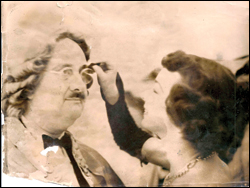

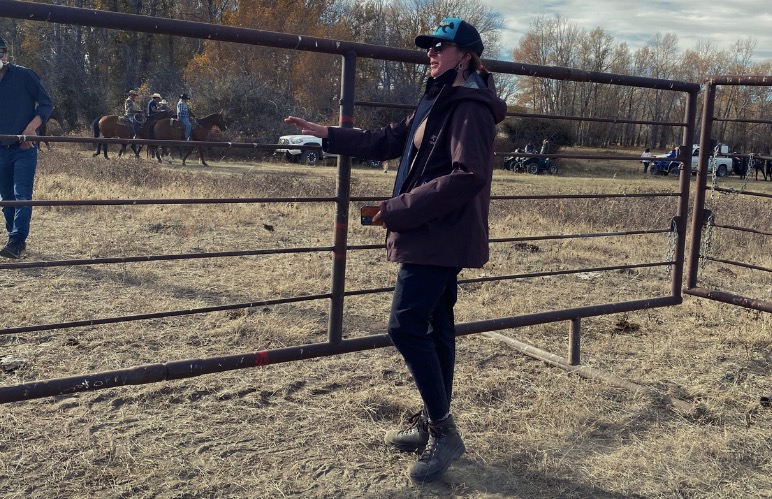
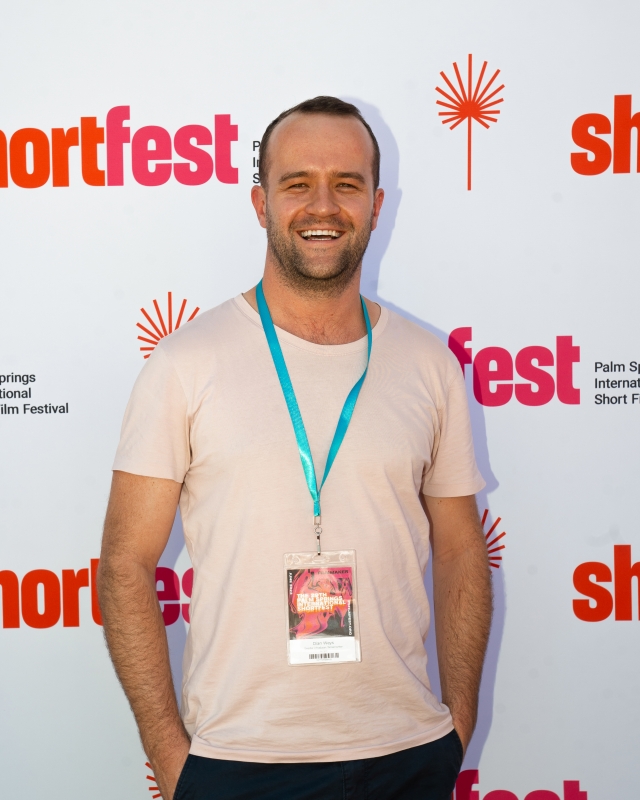
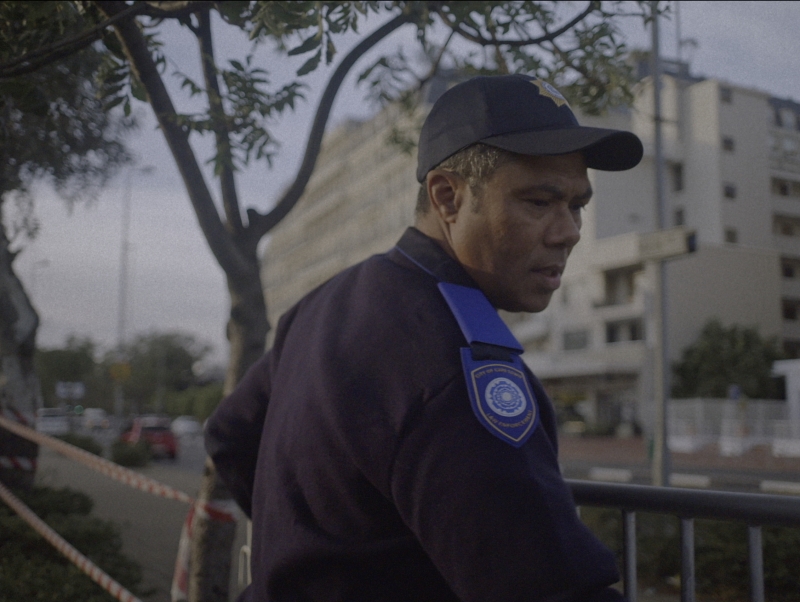
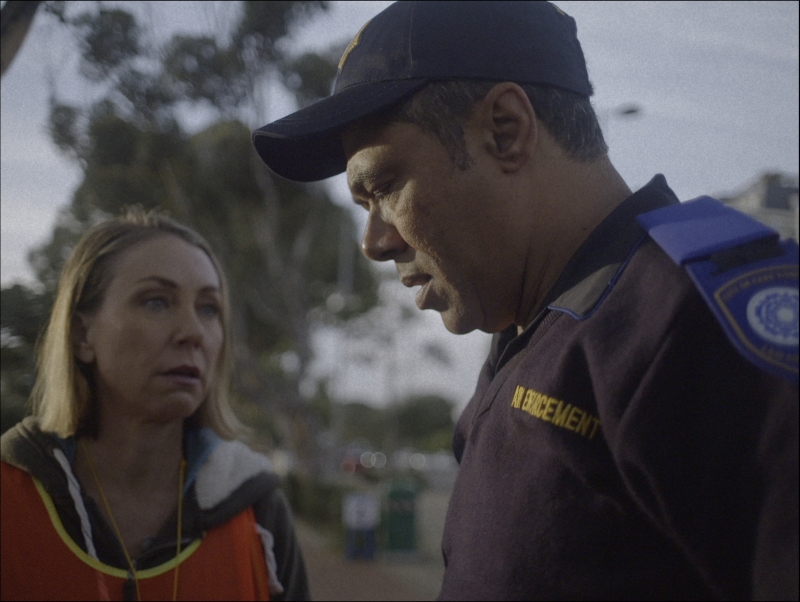
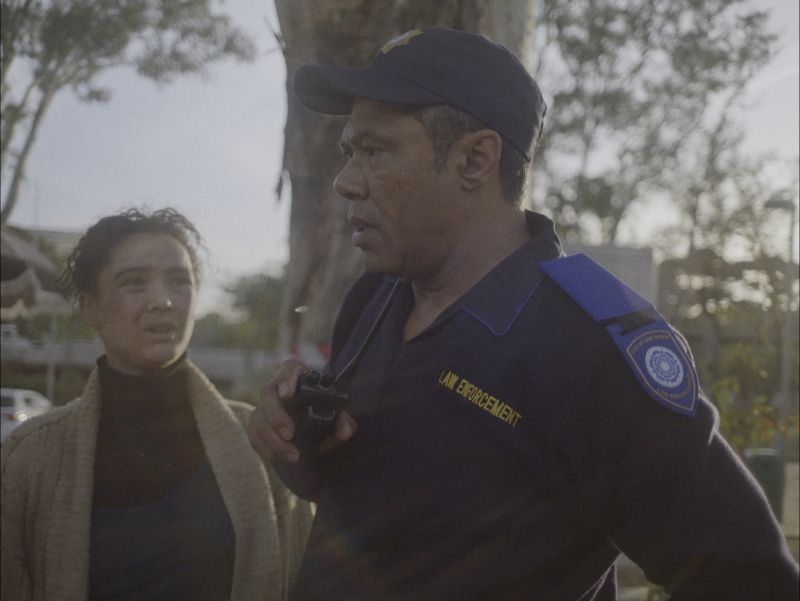
.jpg)



